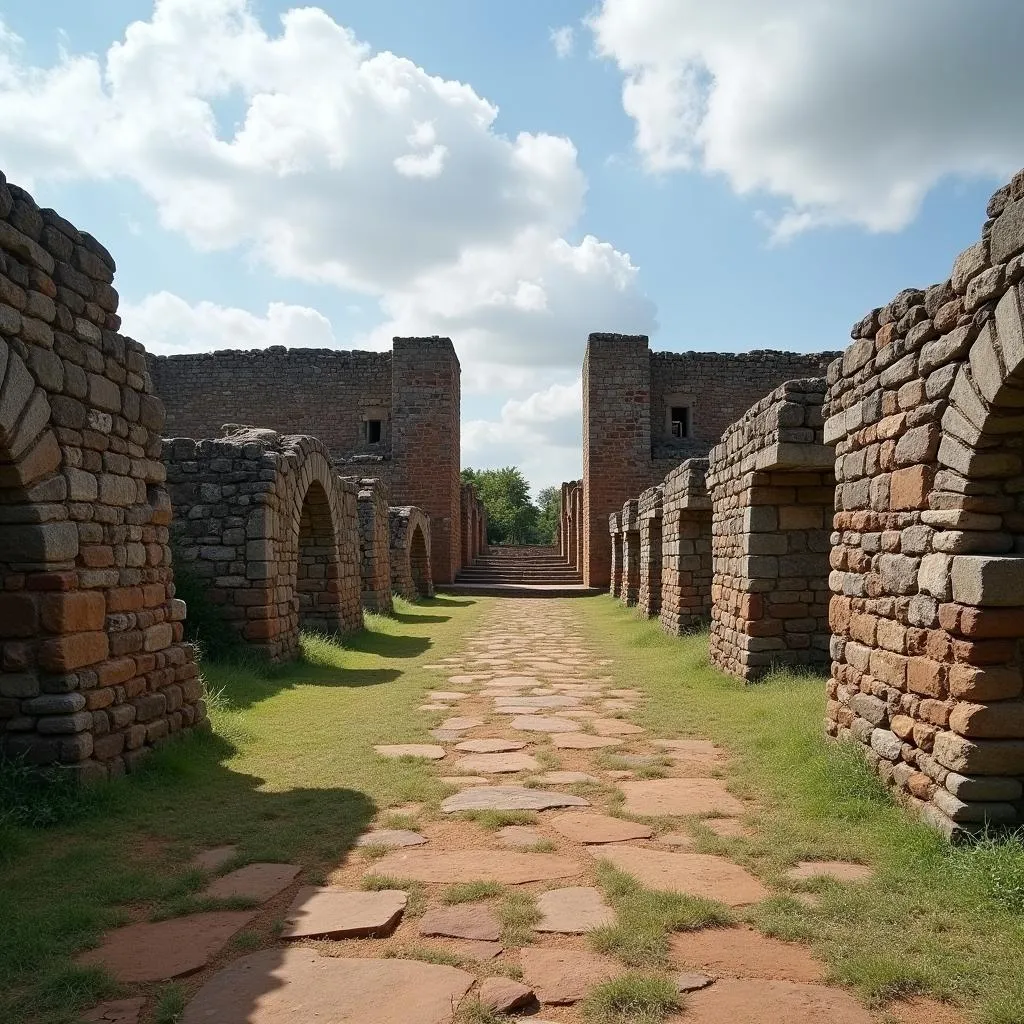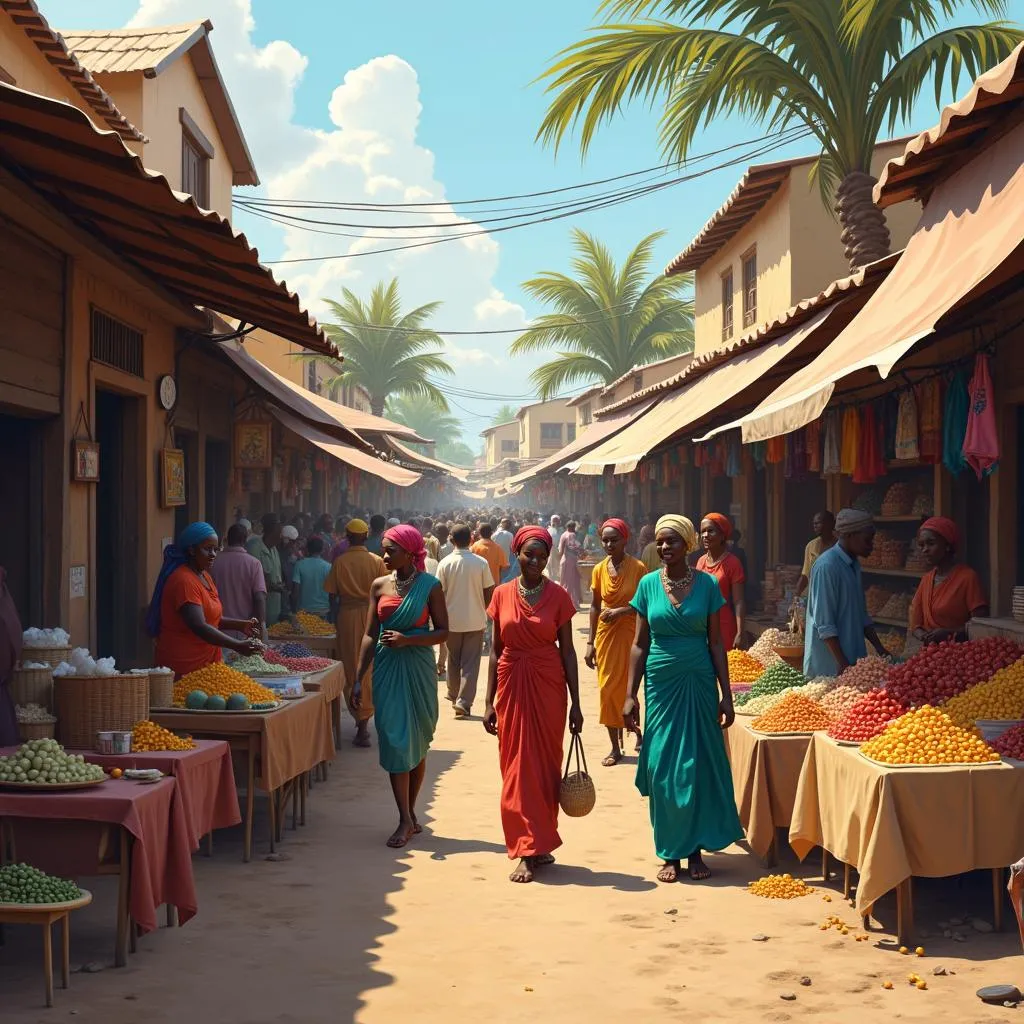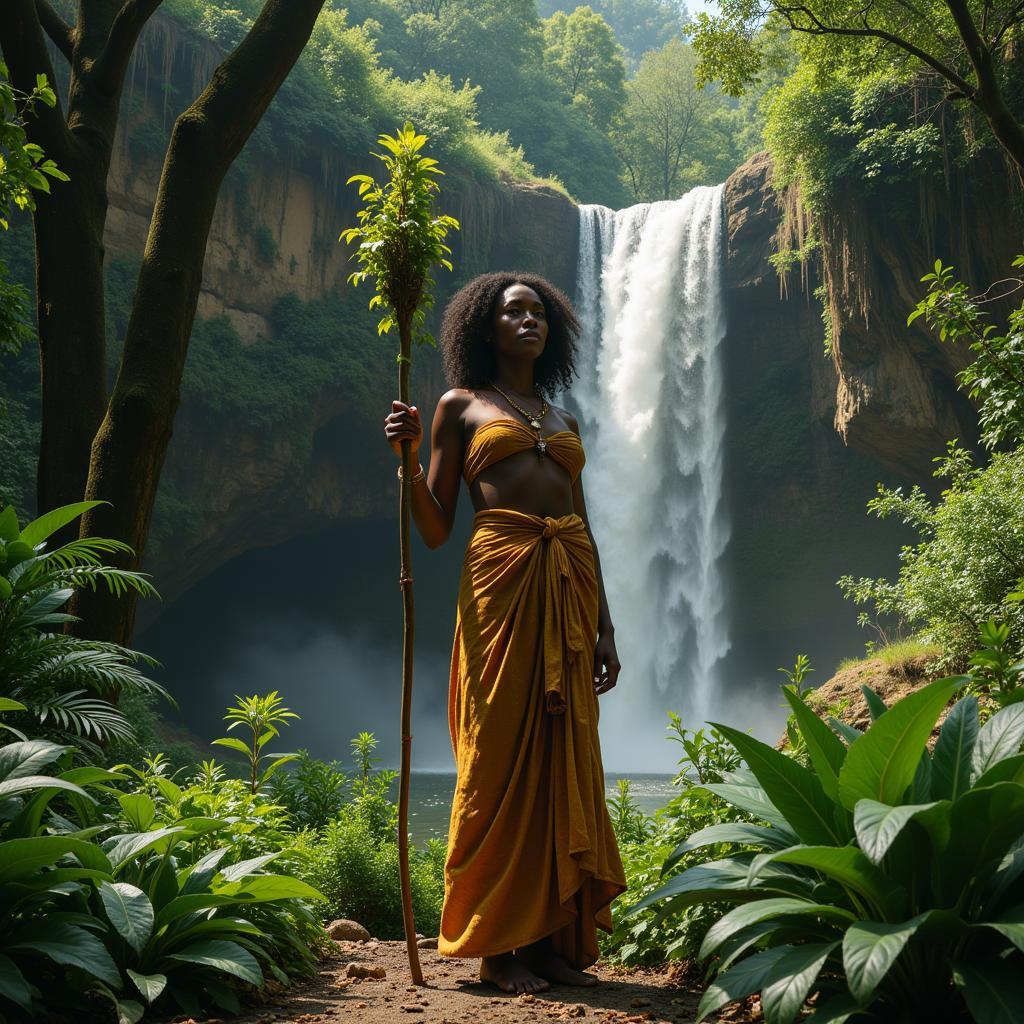Names of African Countries: A Journey Through Language and Culture
The Names Of African Countries, much like the continent itself, are diverse, vibrant, and steeped in history. They offer a fascinating glimpse into the rich tapestry of languages, cultures, and experiences that shape this remarkable continent. From ancient empires to colonial legacies, each name carries a story waiting to be told.
Unraveling the History Encoded in Names of African Countries
Understanding the names of African countries requires a journey back in time. Some names are derived from ancient empires or kingdoms, reflecting a glorious past. For instance, “Ethiopia” traces its roots to the Greek word “Aithiopia”, meaning “land of the burnt-faced people”, a reference to the complexion of its inhabitants. Similarly, “Zimbabwe” harks back to the powerful Shona kingdom of Great Zimbabwe, renowned for its impressive stone structures.
 Great Zimbabwe Ruins
Great Zimbabwe Ruins
The legacy of colonialism is also evident in the names of some African countries. Many nations gained independence in the mid-20th century, choosing names that reflected their newfound freedom or geographic location. For example, “Ghana” adopted its name from the ancient Ghana Empire, which flourished centuries earlier, while “Mali” took its name from the Mali Empire, known for its vast wealth and influence. Others, like “Algeria” and “Tunisia”, adopted names based on prominent geographical features or historical regions.
Linguistic Diversity: A Window into African Identity
The names of African countries also showcase the incredible linguistic diversity found across the continent. With over 2,000 languages spoken, Africa is a linguist’s paradise. Many country names reflect this linguistic richness, often derived from the language of the dominant ethnic group or the most widely spoken language in the region.
For example, “Kenya” takes its name from Mount Kenya, originally known as “Kirinyaga” in the Kikuyu language, meaning “where God dwells”. “Botswana” derives its name from the country’s largest ethnic group, the Tswana people. These names are not merely labels on a map; they are expressions of cultural identity, woven into the fabric of everyday life.
 A bustling African marketplace scene
A bustling African marketplace scene
Beyond the Map: Exploring the Significance of African Country Names
Understanding the names of African countries is not just an academic exercise; it’s an invitation to engage with the continent’s diverse cultures and histories. It encourages us to look beyond the map and appreciate the stories embedded within each name.
“The names of African countries are more than just geographical designations,” says Dr. Abena Asare, a renowned linguist and cultural anthropologist specializing in African Studies. “They are living testaments to the resilience, creativity, and enduring spirit of the African people.”
Conclusion: A Continent of Stories
From the rolling plains of “Tanzania” to the bustling streets of “Nigeria”, the names of African countries are as diverse and captivating as the continent itself. By understanding the historical, cultural, and linguistic significance behind these names, we gain a deeper appreciation for the rich tapestry of human experience that defines Africa. As we continue to learn and explore, we discover that the names of African countries are not just words; they are gateways to a continent brimming with stories waiting to be told.
FAQ
1. What is the meaning behind the name “South Africa”?
The name “South Africa” is a geographical designation, referencing its location at the southern tip of the African continent.
2. Are there any African countries that have changed their names after independence?
Yes, several African countries have changed their names after independence, often to shed colonial-era names or to reflect a renewed national identity.
3. What is the significance of learning the names of African countries in their indigenous languages?
Learning the names of African countries in their indigenous languages is a powerful way to recognize and respect the cultural diversity of the continent.
Do you have other questions about the names of African countries?
Explore our articles on African countries nicknames and 7 letter African countries for more fascinating insights!
Need more information?
Contact us at +255768904061, email us at [email protected], or visit our office in Mbarali DC Mawindi, Kangaga, Tanzania. Our dedicated team is available 24/7 to answer your questions!

